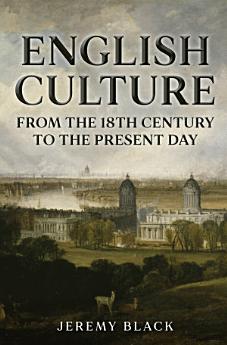English Culture: From the 18th Century to the Present Day
About this ebook
Turnpikes, steam engines, canals, novels, landscape gardens, Adam Smith et al were scarcely indicators of an unchanging world; but Jeremy Black points out that the early period analysed was profoundly historic. The historical bent of the years from the Glorious Revolution to the Great Reform Act could be found in thought, religion, politics, law, society, literature, art, architecture, music, sculpture, and much else, and was true at all levels of society. And history still defines England today, even in its denial or rejection, with the destruction of monuments. History was presented as moving in an inevitable direction, one of steady improvement, a teleological progressivism. Black observes that ‘In the 18th century, the public market for an explicitly English engagement with English culture and history became far stronger, in turn creating models for the future. Even if a shared inheritance, the past was interpreted to emphasise Englishness.’ Then what happened?
About the author
Jeremy Black is Emeritus Professor of History at Exeter University. He is a prolific lecturer and writer, the author of over 180 books. Many concern aspects of eighteenth-century British, European and American political, diplomatic and military history but he has also published on the history of the press, cartography, warfare, culture and on the nature and uses of history itself. He sits, or has sat, on the editorial boards of History Today, International History Review, Journal of Military History, and Media History.








